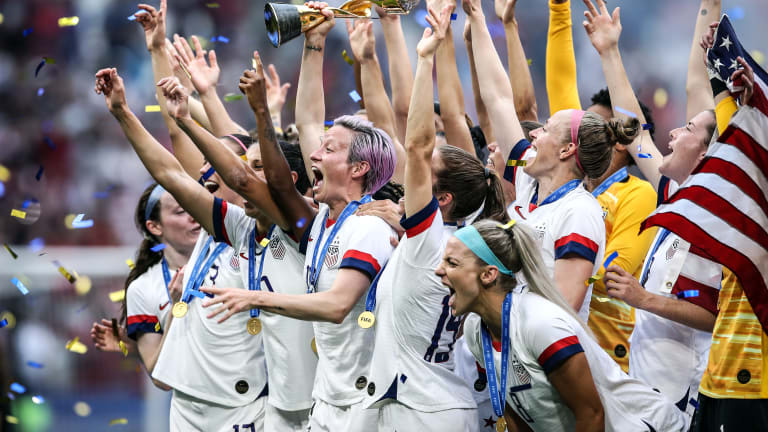Importance of sports
Sporting events provide a great opportunity to foster national unity and international cooperation. Events such as the olympics and FIFA World Cup are vivid illustrations of this.
Aside from this, sports promote: healthy lifestyles, discipline, team-work, problem solving skills and stress alleviation. For marginalised children in urban areas, sports can act as an alternative to precarious situations.
Sports and female empowerment
Futher, sports play a signifcant rolein women’s empowerment. Firstly, sports can teach young women to build resilience, body acceptance as well as the ability to speak up and assert themselves. In addition, sporting events centred around women are influential in thwarting perceptions of women as physically weak individuals.
Lastly, women in sports tend to act as role models to young girls who hope to pursue professional sports.
2019 FIFA Women’s world cup
The United States Women’s National Soccer Team won the Women’s World Cup for the fourth time. Despite this, the team’s compensation is subjected to controversy. There are stark differences in the way male and female sporting events are handled. Unlike the 2018 FIFA World Cup, the 2019 FIFA Women’s world cup has gone unnoticed. More specifically, the latter has received a dearth of campaigns, press coverage and social media attention.
This is the latest debacle in an ongoing trend of gender inequality on and off the field.
Patterns of inequality
Aside from a lack of support for women-centred sporting events, female atheletes recieve less pay and less money in prizes and sponsorships. Additionally, the standards of equipment used in women-centred sporting events are usually of lower quality than those used in other sporting events.
It is surprising that women in sports are left so far behind at a time where gender equality and representation is at the forefront of political and commercial agendas. It is even more shocking that civil society has shied away from advocating for equality in sports arenas. With the widespread knowledge of the influence of sports on women’s empowerment, the lack of promotion for female sporting events represents sheer negligence.
It is up to international sporting events such as the FIFA World Cup to set the tone by holding all sporting events to the same standard. Brands that sponsor these events should acknowledge the power that they have in bridging this gap and should market female sporting events in an empowering fashion.
The fight for equality runs deep and should not be relegated to arenas such as politics. Representation in sports is just as important and deserves acknowledgedment in feminist agendas.
About the Author

Amy Oloo completed her master’s in International Affairs at the American University of Paris and has a keen interest in issues that pertain to intersectional feminism.
Blog posts by this author:
The Sudan Massacre: Patterns of oversight in the Media
Women in conflict: untold narratives in the media
Mental illness and violence against women
Erasure of Black women in the fourth feminist wave
